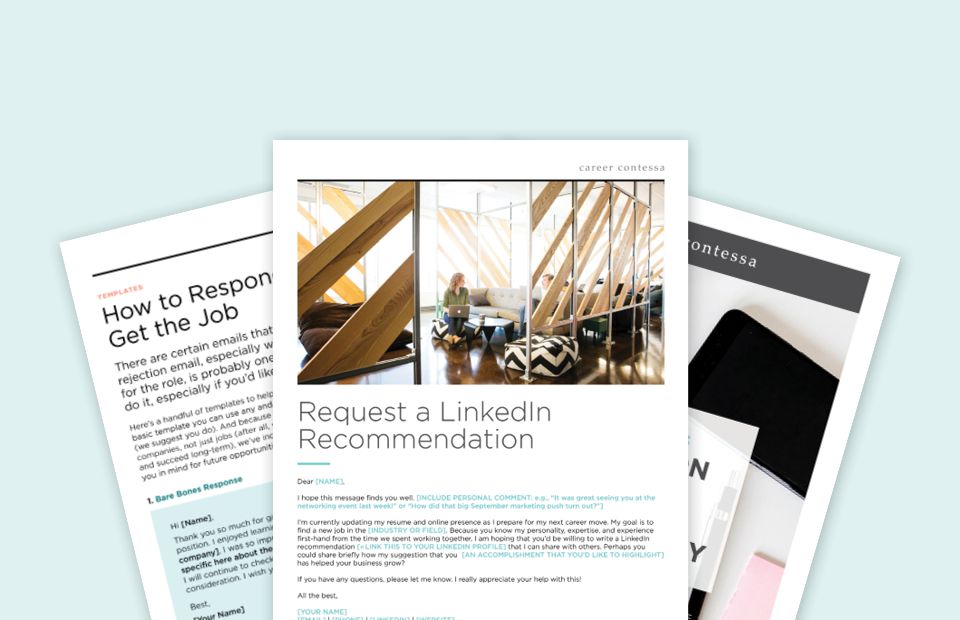You're unemployed with no solid leads. What should you do?
There's nothing worse career-wise than being
laid off. (Well, there could be other equally bad things, but this one hits different).
Job loss is one of those career events that can have a lasting impact, and unfortunately, most of the time, people don't see coming.
What can make that feeling of trauma last even longer after being laid off? When your job search turns into days, weeks, and months, you realize you're quickly reaching the ranks of the long-term unemployed.
Is this something to be worried about? What does it even mean to be long-term unemployed in the United States?
According to the
Bureau of Labor Statistics (the BLS), long-term unemployment is defined as people who have been unemployed for 27 weeks or more and those who have been actively seeking employment in the larger workforce within the previous four weeks.
We're huge supporters of the thought that anyone who wants to work should be able to, so while you may not technically be at the defined 27 weeks of unemployment, maybe the current elapsed time between your last job and your next one (the unemployment duration) is starting to take a toll on your mental health or financial situation.
You Might Also Like:
How to Survive a Long-Term Job Search
1. Take Time to Regroup
If the duration of unemployment is reaching (or is past) the six-month mark, it may be time to regroup.
First, it's important to acknowledge the state of the job market. Being a job seeker during any economic instability (an economic downturn, an undefined
recession, continued recovery from the long-term impacts of Covid-19) is a challenge.
Take a break from job-seeking activity and start fresh, but be aware of the time of year.
Historically, the early spring (February to April) and summer-to-fall transition (
September to early November) mark a
surge in hiring.
December is historically the time of year when hiring slows down. While this will look different for everyone, it's time to start looking with a different lens and reassess if your
goals remain the same.
Is
financial security the main priority, or is it worth it to wait for something that fits all of your search criteria? If your financial goals have changed, it might be a good time to apply for UI benefits (unemployment benefits with your state) or a UI extension.
2. Consider Freelance or Part-Time Work
It was likely easy to pass on these at the beginning of your job search in favor of something more in line with the role you left, but don't overlook these opportunities. In some industries, contract assignments are becoming more abundant than full-time ones, and some of these assignments can be as long as 18 months (or longer) at some of the most reputable organizations.
On your resume, this would look like a stable long-term position. This is also a great place to test a new skill or
upskill while you are on the job. Which brings us to our next point...
3. Take Time for Professional Growth
It may be time to upskill.
Have you been putting off getting a certification in a subject you were interested in but never had time to finish? Is there something you should learn to get ahead of? Are you prepared for a technological change in your industry? Do you want to go back to school?
Now is the time to learn something new and apply it!
4. Consider a Different Industry
Were you in love with the industry you were working in, or the type of work you were doing? It may be time to branch out if you've only been looking for work in a specific niche.
Your skills are likely
applicable in adjacent industries, and if you know the industry you were working in continues to have layoffs, it's time to look elsewhere. You can always come back to your favorite industry when things are better. Who knows, you may find something you love just as much (or more), and you need to give it a chance!
5. Rethink Your Networking Strategy
If you feel like you've exhausted your entire network, it may be worth one more intentional pass.
It's time to make a list of everyone you know—friends, family, friends of friends, former colleagues from your first job out of college to your most recent one, high school classmates, colleagues who were laid off with you, your kids' friends' parents—you get the point.
Now, go back through and figure out where they work. Then, go look at each of those company's websites to see if there is a job there that interests you. NOW, reach out to the people on your list and make a specific ask about the specific job.
Your
network wants to help. They just may not be sure how unless you're specific.
6. Use LinkedIn with Intention
Make sure you aren't just posting to post or sharing anything that might make a potential hiring manager or recruiter think twice about reaching out.
If you aren't sure, it's probably best not to post it. (Save those posts for a different platform!)
Instead, creatively use LinkedIn posts—write a (short) feature story about yourself (volunteering anywhere cool? Did you travel somewhere?).
Use the post feature to tell potential recruiters and hiring managers how you have been using your time in a special interest update about yourself.
Another way to intentionally use LinkedIn is to leverage Inmail. You may have a few free ones that you can send. Now is a great time to do so!
Do Some Research
Can you find a contact within your passive network that you'd like to be introduced to or have coffee with? Is there someone worth doing an
informational interview with? This is a great time to be bold and ask for an introduction or take a chance to meet someone new.
There's a 50/50 chance of getting a response, but if you don't send the message, there's a 100% chance you won't make a beneficial connection. You don't have anything to lose by trying!
7. (Re)Discover Your Hobbies
Focus on a hobby—or for the first time ever, identify one! This is a great time to get back in touch with yourself. After all, this may not be the first time you have a career break, and over the span of a 30 year career, the likelihood that it will be the last is slim.
If you give 115% to work, we need to make it clear that work is not a hobby. (Sorry!)
There should be things in life that you do for pure enjoyment, stress relief, or a purely creative outlet— that isn't work. While you may love your job, it isn't and should never be everything.
Your career is only a part of your life story...it shouldn't be the only story you have to tell.
Spend some time crafting, writing, cooking, building—whatever! It will be good for your soul to get lost in something simply for the enjoyment of it.
8. Create a Sustainable Routine
Make a schedule for yourself...just like if you were working. This doesn't mean you should engage in job search activity for eight hours a day, five days a week, but it does mean that you need to put boundaries around what you're doing.
Your schedule should also include exercise, socialization, time for that hobby we talked about earlier and anything else that brings you joy—family, volunteering, etc. This is your opportunity to establish good habits for when you do go back to work. Set time weekly (two or three days for a couple of hours each, for example) to look at job openings, apply, and network.
9. Expand Your Search
Everyone is using LinkedIn and Indeed, but it's likely time to diversify. This ensures you aren't just adding your application to the same pile as everyone else. Here are a few
alternative job search engines that you may want to consider, particularly if you're open to an industry change:
- Power to Fly (focused on diverse and inclusive hiring)
- USAJobs (for jobs with the federal government)
- ZipRecruiter (many employers use this site to post jobs due to ease of use)
- The Ladders (known for posting executive-level positions)
- FlexJobs (largest job search engine for remote, hybrid, and alternative schedule positions)
- HigherEdJobs (for those looking to transition into higher education roles)
- Idealist (for those interested in working in the nonprofit space)
Additionally, check to see if your college or university has a career services department with programming available to alumni. This should be a free resource, and often, alums are allowed to attend university career fairs and use the other services provided by the school's career services department.
10. Consider a Career Coach
If you are feeling directionless, it may be time to chat with a
Career Coach or take a career assessment to get an objective perspective.
Sometimes, long-term unemployment can make you question your entire job history and cause doubts about your chosen field of expertise. Questioning is normal—talking it through with an expert is a great way to create a plan moving forward.
A reputable career assessment is an objective, scientific, and statistical way to determine your strengths and interests. The results may tell you something you didn't know about yourself that may spark new career ideas or direction.
11. Prioritize Your Mental Health
And finally, above all, make sure you're taking care of your mental health. The effects of long-term unemployment can be farther reaching than you may realize.
There's no shame in seeking counseling from a licensed professional if depression or anxiety is starting to take over. These two things alone can make it difficult for those with the most talent and capability to be creative and innovative as they continue their search.
Good luck, and stay positive. This won't last forever!












